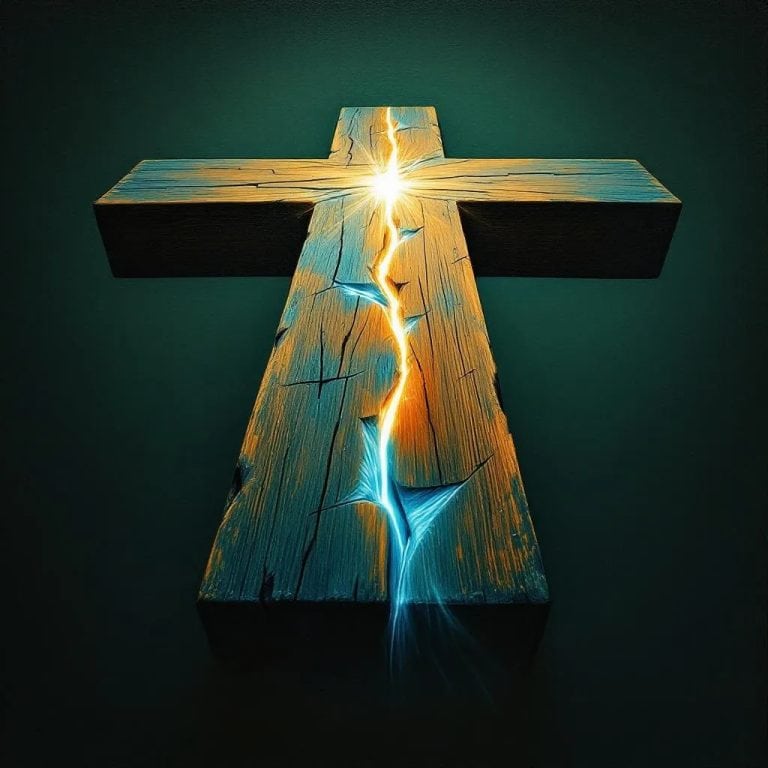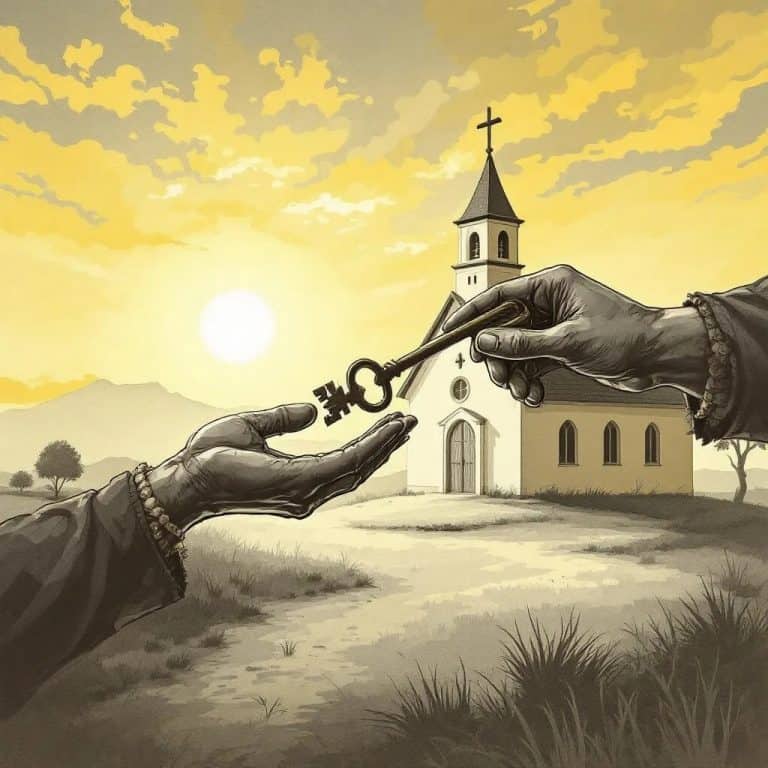Is God Real? How Scripture, Conscience, and Creation Testify to the Truth
Is God real? That question is not a distraction from the Christian faith. It is the very ground on which everything else stands. If God is not real, the Bible is a lie, the cross is pointless, and morality is up for grabs. But if He is real—and He is—then every soul must wrestle with what He has said, what He has done, and what He demands.
This article walks through the witness of Scripture, the voice of conscience, the testimony of creation, and the person of Christ to answer one of the most urgent questions of our time: Is God real?

Scripture Does Not Ask the Question—It Declares the Answer
The Bible does not begin with an argument for God’s existence. It begins with God. “In the beginning, God created the heavens and the earth” (Genesis 1:1). No defense. No preamble. Just truth.
Throughout its pages, Scripture presents the living God as Creator, Judge, Savior, and King. He speaks. He acts. He redeems. He sends His Son. He raises the dead. The writers of Scripture did not wonder if God is real—they bowed in reverence before the One who is.
Psalm 14:1 does not mince words: “The fool says in his heart, ‘There is no God.’” The issue is not lack of evidence but suppression of it. God has made Himself known, and His Word bears witness.
Creation Cries Out: God Is Real, and He Is Glorious
Paul says in Romans 1:19–20 that God’s eternal power and divine nature have been clearly seen “ever since the creation of the world, in the things that have been made.” Psalm 19 echoes it: “The heavens declare the glory of God.”
The created world is not silent. Every sunrise, every thunderstorm, every intricate cell, and every star-filled night speaks to a Designer. Order demands an Orderer. Beauty demands a Creator. Life demands a Giver.
To look at creation and say “There is no God” is not a scientific conclusion. It is a spiritual rebellion. God is not hiding. He is proclaiming Himself in every leaf, every ocean wave, every galaxy—and every breath you take.
The Conscience Points to a Lawgiver
Ask yourself: Why do you believe some things are right and others are wrong? Why do cultures across the globe share common moral instincts—against murder, against theft, for truthfulness, for compassion?
Because we were made by a moral God.
Romans 2:15 says the law of God is “written on their hearts.” Every human being carries a conscience that bears witness to right and wrong. That conscience is not infallible, but it is inescapable. Even those who deny God live as if some higher moral law exists.
Where did that law come from? Who decided that cruelty is evil and love is good? If we are merely cosmic accidents, morality is meaningless. But if God is real, morality makes sense. And the weight of conscience finds its answer in the justice of a holy God.
Jesus Christ Is the Final, Unshakable Proof
You want to know Is God real? Look at Jesus.
He healed the blind, forgave sins, and commanded the winds. He claimed equality with God. He died publicly, and He rose from the grave bodily. Hundreds saw Him alive. Skeptics were converted. Enemies were transformed into bold witnesses.
The Christian faith is not a vague spiritual feeling. It is rooted in the historical resurrection of Jesus Christ. If Jesus rose, God is real, the Bible is true, and your life has eternal significance. If He did not rise, Christianity is false. But the resurrection stands as the most verified miracle in history.
“God was manifest in the flesh” (1 Timothy 3:16). The question is not whether God has revealed Himself. The question is whether we will repent and believe.
The Problem Is Not Evidence—It’s the Heart

Some ask Is God real? because they genuinely want to know. Others ask it as a smokescreen. They want freedom without accountability, pleasure without holiness, life without Lordship.
But denying God’s existence does not make Him disappear. It only blinds you to the mercy He offers. Romans 1 says people suppress the truth in unrighteousness. John 3 says people love darkness rather than light because their deeds are evil.
God is not on trial. We are.
The good news? He is patient. He is kind. And He calls even the hardest heart to turn and live. “Seek the Lord while He may be found; call upon Him while He is near” (Isaiah 55:6).
What If I Want to Believe, But Struggle?
Some don’t reject God out of pride. They wrestle with pain, disappointment, or silence. They ask Is God real? not as a challenge—but as a cry.
If that’s you, take heart: You are not alone.
Thomas doubted too. So did David. So did Job. But they brought their doubts to God, not away from Him. God is not threatened by honest questions. He welcomes them. “A bruised reed He will not break, and a smoldering wick He will not quench” (Matthew 12:20).
You don’t have to clean yourself up to seek Him. You don’t need a perfect record. What you need is humility and honesty. God promises: “You will seek Me and find Me, when you seek Me with all your heart” (Jeremiah 29:13).
The God who made the stars knows your name. He knows your wounds. He knows your doubts. And He is not far off.
Cry out to Him. Ask Him to show Himself through His Word. Read the Gospels. Wrestle in prayer. Open your Bible not as a critic, but as a seeker.
God does not play games with sincere hearts. He draws near to the brokenhearted. And if you truly seek Him—you will find Him.
The Real Question: Will You Respond to the God Who Is?
So, is God real? Yes. And the evidence is not weak—it’s overwhelming.
His Word declares it.
Creation reveals it.
Your conscience confirms it.
And Jesus Christ proves it.
The God who made you does not need your permission to be real. He calls you to repent, believe, and bow before the name that is above every name. He is not an idea. He is not a crutch. He is not a myth.
He is I AM.
If you’ve been wondering, doubting, or hiding—there’s still time to come. The God who is real sees you, knows you, and sent His Son to save you. Would you like to know more about the grace of God? Check out this free resource.
Walt Roderick is a Christian writer who cares more about biblical clarity than online applause. He writes to strengthen believers and confront spiritual drift.






